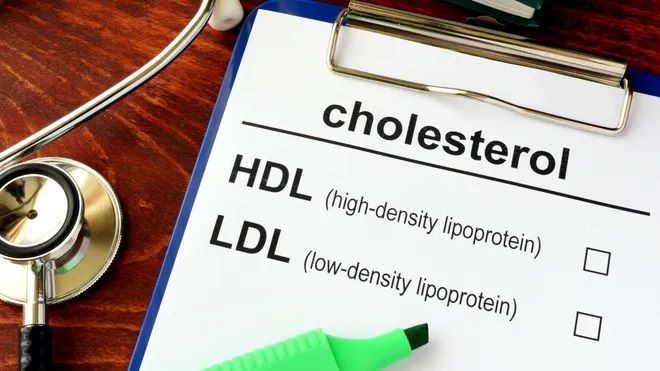
16, Sep 2025
September marks National Cholesterol Education Month, making it the perfect time to raise awareness about managing cholesterol levels for a healthy heart.
Cholesterol screenings on a routine basis are very important, especially if you have risk factors such as a family history of heart disease, obesity or a sedentary lifestyle. Uncontrolled high cholesterol can lead to severe health conditions, including heart disease, stroke or peripheral arterial disease.
Taking steps to lower your risk for high cholesterol with the following lifestyle changes is a great start.
High cholesterol level is one of the significant risk factors for stroke and heart disease, two of the leading causes of death in the United States.
Cholesterol is a waxy substance formed in the liver, producing all the cholesterol your body needs. Cholesterol envelops other molecules in the bloodstream to carry them throughout your vascular system. It is part of the makeup of cell walls, hormones, and vitamin D. It also helps form bile to digest fatty foods. Too much cholesterol can build up as plaque in your arteries, leading to stroke and heart disease.
An unhealthy lifestyle leads to high "bad" LDL or low "good" HDL cholesterol. Eat a heart-healthy, balanced diet. Focus on monounsaturated fats, including olive oil, nuts, and avocados, and polyunsaturated fats, including salmon, herring, and margarine. Avoid saturated and trans fats that increase your "bad" LDL cholesterol levels.
No more than 10% of daily calories should come from saturated fats found in animal products such as fatty cuts of meat, cheese, and full-fat dairy products. Also, limit red meat, fried foods, processed meats, and baked goods.
Exercise regularly with a target of at least 150 minutes of moderate aerobic exercise weekly. Try to incorporate resistance exercises into your routine at least twice a week.
Quit smoking. Smoking tobacco lowers HDL cholesterol, particularly in women, and raises LDL cholesterol, and can result in cholesterol accumulation in arteries, leading to atherosclerosis.
Maintain a weight that is healthy for you. Being overweight or obese certainly increases your risk of developing high cholesterol levels. Your doctor can help determine a sustainable weight management plan.
Stress may raise certain hormones, such as corticosteroids, that cause your body to make more cholesterol particles.
Consuming too much alcohol can raise your total cholesterol level as well. Restrict your drinking to no more than two drinks a day for men or one drink a day for women.
Let this month of September be a reminder about the risks of high cholesterol. Unmonitored, it can lead to serious health issues, potentially leading to heart disease and stroke.
Combat this silent killer by knowing your numbers and risks, and making healthy lifestyle choices. Without any delay, you should consult with your physician to be evaluated and have your levels checked via a blood test.
Dr. Sue Mitra and her staff strive to offer their patients the best care, advice and services available in the medical field with the goal to keep patient healthy & happy.

Dr. Sue Mitra is board certified in international medicine. She is seen here with a Cologuard, which is a noninvasive colon cancer screening test. (Photo by: Tim Shortt/Florida Today)